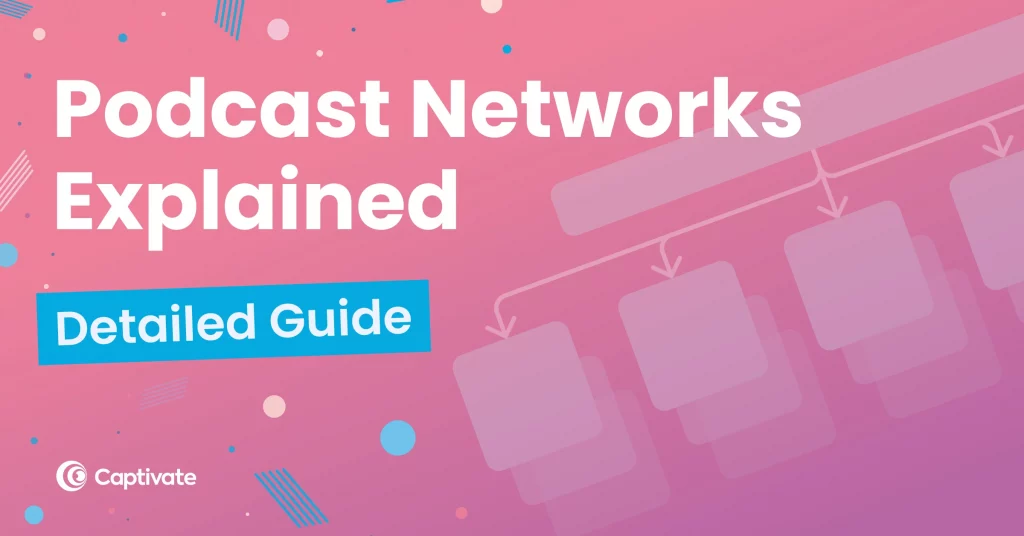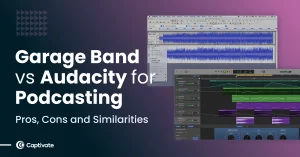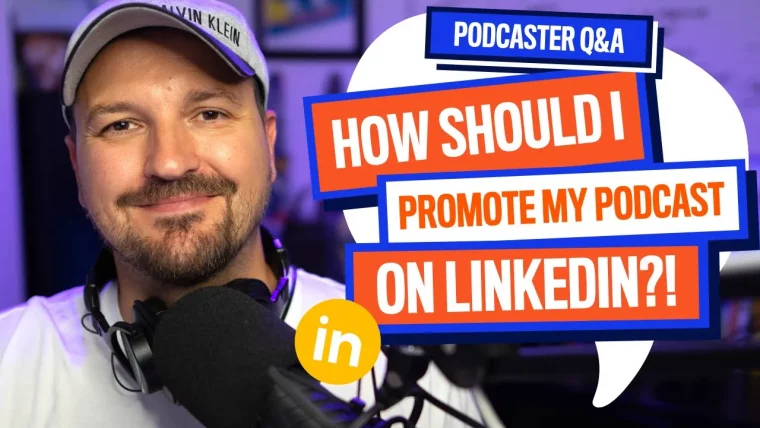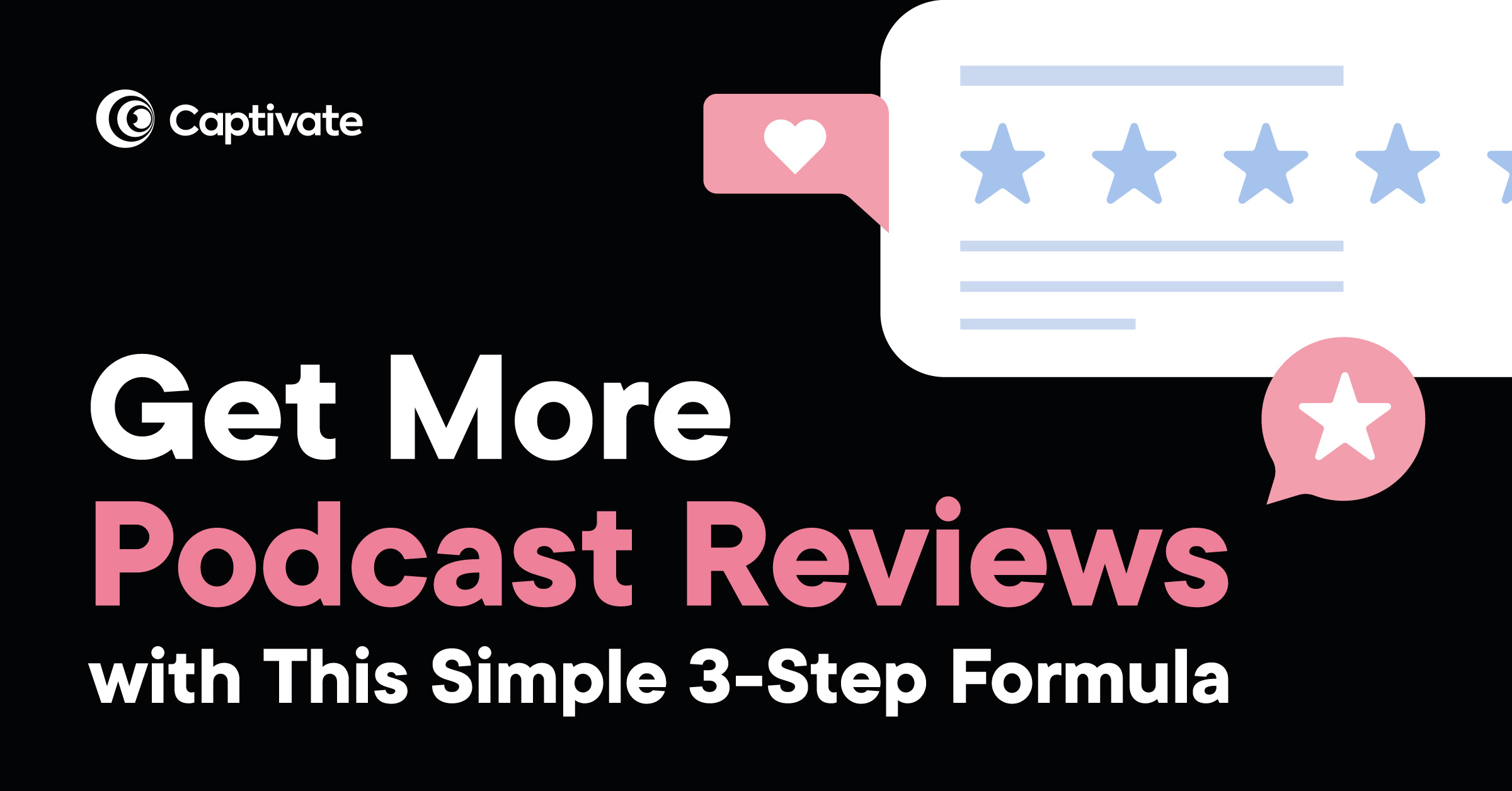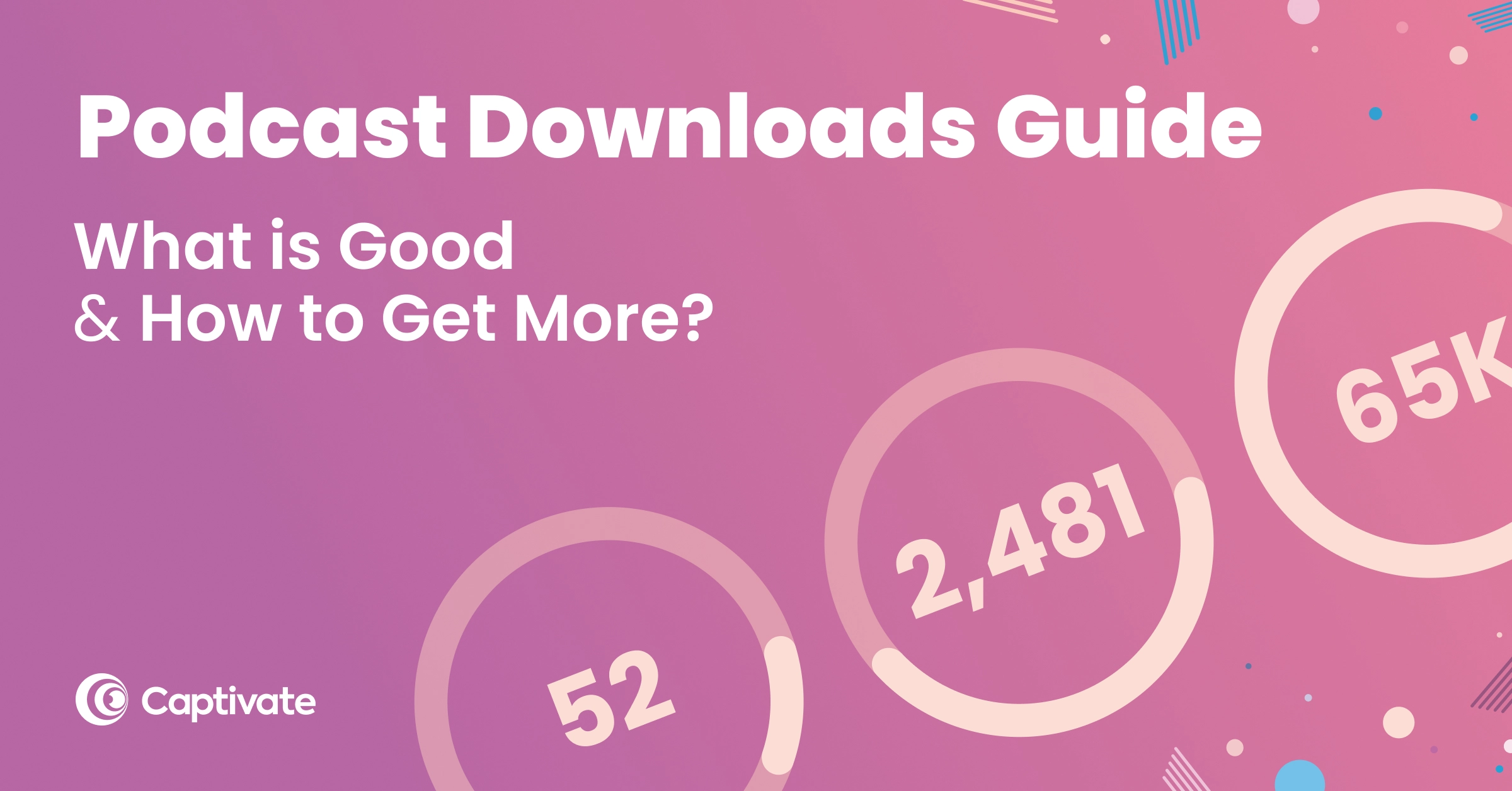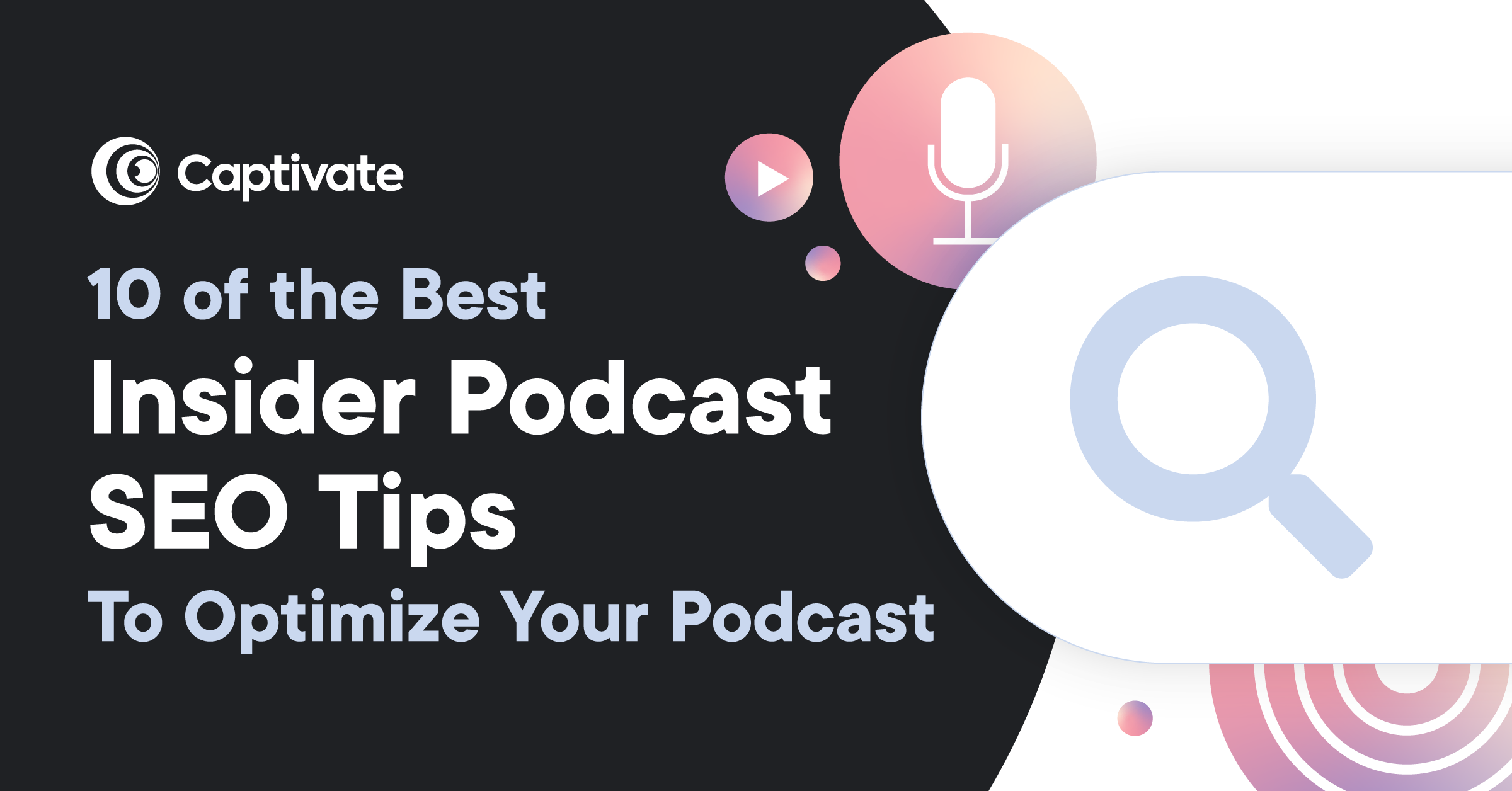Have you been thinking about joining a podcast network, or perhaps you’ve been toying with the idea of starting one from scratch?
Both joining and starting networks have their advantages and disadvantages, you just have to make sure that whatever you decide, it is the right choice for you and your podcast.
This guide will help you to do just that as we explain everything you need to know about podcast networks, so that you can make the right decision. No stone will be left unturned! After reading our guide, you’ll be clued up on everything to do with podcast networks.
Right then, let’s get stuck in and start with the most important question first…
In this article...
What are podcast networks?
In the most simple terms, podcast networks are a collection of podcasts which are produced, distributed and marketed through a single organization, otherwise known as a podcast network. Podcasters typically join networks to take advantage of benefits such as shared resources or being able to market to a wider audience.
Podcasts in a network usually share a common theme or topic. These can be broad for example, music, comedy, finance etc. They can also be more targeted and specific, for example, a podcast network that celebrates retro games and entertainment from the 90s.
Podcast networks don’t always share a common theme or topic. Podcast networks are also created when there’s a collection of shows that have the same production team – the people behind making the podcasts happen.
Of course, there are both benefits and disadvantages of podcast networks, which we’ll go into more detail later, but the main idea with networks is that podcasters and creators can pool together resources and expertise, which is especially helpful for independent creators. You can also reach a wider audience with networks, making growing your podcast and listenership easier!
How do podcast networks work?
You may be thinking, I like the sound of networks, but how do they actually work?
A totally valid question. This obviously depends on the network, but generally speaking each podcast in a network retains its own brand and identity.
The network may also provide a centralized platform for hosting, distribution and management of the podcast (e.g. a hosting company like us, Captivate).
In exchange for benefits that come with joining a network, podcasters will typically have to agree to certain terms and conditions of the network. For example, agreements to do with how profits are shared, or agreements on advertising and exclusivity.

Benefits of podcast networks
Let’s look at some of the benefits of podcast networks:
- Increased visibility and discoverability: with network-wide promotion of shows, podcasters can reach a wider audience. Basically, your podcast will be advertised to other podcast audiences in the podcast network. It’s a great opportunity to reach people who may have not come across your podcast otherwise!
- Additional support and shared resources: we’ve touched on this already, but being part of a network means that you have access to extra support and resources such as editors, designers, marketers etc, making processes and managing a podcast much easier.
- Cross-promotion opportunities: cross-promotion between shows provides a way for podcasters to promote each other’s shows, and build a stronger community around the podcasts and the network as a whole.
- More revenue opportunities: podcasts in a network will have profit and revenue opportunities such as ad sales, sponsorships and merchandise sales. This is a great way for podcasters to earn money and in some cases make a sustainable source of income.
- Chances to develop as a podcaster: being part of a network is a great opportunity to level up your podcasting skills, build relationships and develop your podcasting career, as you will be working alongside other creators, industry leaders and experts.
- Collaboration and innovation opportunities: podcast networks foster collaboration and community building among podcasters. Creators can exchange ideas, feedback, and expertise with each other, leading to more creativity and innovation in the industry. It’s a win-win for everyone!
- Enjoy better insights: teams in a network have the time and resources to really analyze and understand your listener data, which can help the success of your podcast. For example, some networks will do surveys with your podcast audience but also those of other shows in the network.
- Helps with credibility: obviously, there are many things you can do to help with your podcast credibility e.g. entering awards, becoming a podcast guest on other respected podcasts etc. However, joining a podcast network that is highly regarded or specializes in your niche, is a great way to build authority.
- Better marketing opportunities: most networks will have a marketing team, meaning you will have access to bigger marketing budgets and expertise from experts, to really help with the success of your podcast.
Disadvantages of podcast networks
Of course, there are some disadvantages of joining a podcast network:
- Loss of control: this won’t be the case for all networks, but some may require podcasters to give up some control over their content, branding and distribution. For example, some networks may require podcasts to follow certain rules and processes for creating content, designing assets and distribution.
- Profit making limitations: yes, being part of a network will provide more opportunities to make money but some networks require podcasters to share a percentage of their earnings with the network. This obviously limits how much you can make as a podcaster.
- Limitations due to exclusivity agreements: when joining some networks, some podcasters and creators may be asked to sign exclusivity agreements, which prevent them from working with other networks, or even creating content outside of the network.
- Becoming dependent on the network: podcasters may become reliant and depend on the resources and services that a network offers. This may be tricky if a network experiences any finance or operational issues, as this could have an impact on the podcaster’s ability to produce content and continue with their podcast.
- Brand dilution in large networks: this is only really an issue if a network includes a large number of shows or creators, as it could dilute the brand and identity of the individual podcasts, making it harder for listeners to come across you and other shows in the network.
- Miscommunication and delays: a successful network needs to have effective communication and coordination between the network and the shows that are part of it. Any miscommunication or lack of coordination could lead to issues such as missed advertising opportunities, product delays and other mistakes.
- Hosting migrations: we touched earlier on podcast networks providing a central place for podcasts to be managed etc. This is great for saving money, but you may be required to move from your current hosting platform, to another one that doesn’t have the same features etc.
- Ending existing sponsorships: this is definitely something important to consider. If you have existing sponsorships, the network you are joining may ask you to end them, due to conflicts or other reasons.
- No guarantees: like anything in life (getting deep), there are no guarantees. Yes, podcasts have enjoyed great success from being part of networks, but the same may not be true for you. When joining a network, it’s good to have this in mind.
Should you join a podcast network?
Whether you should join a podcast network all depends on you as a podcaster, and what you are wanting to achieve. What are your goals?
There are some awesome advantages that come with joining a podcast network, but there are disadvantages, which we have explored and gone into detail above.
Before joining a network, do your research. Carefully consider the pros and cons. If the pros outweigh the cons, then go for it! Join a network. Especially if it will help you to achieve your goals more effectively than going alone.
Another thing to consider is, does the network you’re thinking of joining, align with your own values and goals? Who else is already in the podcast network? Are you happy with the terms and conditions for being part of the network? All important questions to think about.
Reach out to a podcaster who is already part of the network, and talk to them about their experiences so far. What do they like about being part of the network? Do they find anything challenging?
Once you have all this information, you’ll be in a better position of making a decision that is right for you and your podcast.
Requirements of joining a podcast network
When thinking about joining a podcast network, there are requirements that you need to meet.
For example, some networks may only work with podcasts that have influence, as this will help with profits and revenue made. Some networks may make demands such as (but not limited to):
- Number of monthly downloads: as a general rule of thumb most networks require podcasts to have at least 1K downloads per episode or 5K per month. Bigger networks may even require more. This isn’t always the case, and depends on the network: for example, there will be networks that aren’t so driven by numbers and more about the shows and particular topic, theme or message.
- Frequency of podcasts: again as a general rule of thumb, some networks require podcasts to launch at least one episode per week, as they want shows that are generated fresh and frequent content. Again, this won’t always be the case.
- Agree to sharing revenue: we touched on this in disadvantages, but networks will usually require podcasts to share revenue eg 60/40, 70/30 – you get the idea!
- Other requirements: these are just a few examples of requirements, as all networks differ! It’s always a good idea to read the fine print before signing anything.

How to join a podcast network
Ok, so we’ve covered what podcast networks are and how they work, their advantages and disadvantages, and possible requirements. How do you actually join a podcast network? Here are some easy steps to follow:
- Find relevant networks: first up do your research and find relevant networks that you would like to join. Make sure the network is relevant for your podcast, and make sure that your values and goals align. Have a look at who else is in the network too. Search on Google, get looking in forums such as Reddit, and do research with existing podcasts – some handily include the network in their title or in the show notes.
- Have a backup: always have a backup. Make a list of 2 or 3 networks, in case your first choice says no.
- Make sure you meet requirements: before getting in touch make sure that you meet requirements, to avoid wasting time and effort!
- Make the network proud to have you: you should always be aiming to create quality content, as you want listeners to stick around and listen to your show, but this will also help with getting networks to say yes to you. Make them want to have your podcast.
- Pitch: some networks will have a process you have to follow to submit a podcast to a network, but sometimes a good old-fashioned email will do the trick. Introduce yourself and the podcast, explain why the partnership will be mutually beneficial, include top stats of your podcast and include links to your episodes. Aim to be short and snappy. Don’t give them an essay to read.
- Share reviews: when you are pitching your show to a network, don’t be afraid to share reviews of your podcast. What listeners have said about your podcast. Basically why you and your podcast is awesome!
- Ask questions: make sure to ask questions! Ask them about advertising and sponsorship, promotion, possible hosting migrations, benefits etc. Don’t be afraid to ask anything, no question is going to be silly. You need to get a full understanding of a network before joining.
Podcast networks for small independent podcasts
If you are an independent podcaster or creator, podcast networks are great for all the reasons we’ve covered. e.g. shared resources and support, advertising and sponsorship opportunities, saving money and time opportunities etc. The list of advantages goes on! Just be mindful of the disadvantages, requirements or terms of the network, before joining a podcast network.
Don’t just look at the big networks, but have a look at smaller, independent podcast networks that you can join, as there won’t be as many requirements and they will be set up to support independent shows and creators. For example, look at the Independent Podcast Network, as they help podcasts of all shapes and sizes, and have free resources to help you launch and grow your show.
Another article we think you'd like...
Reading Time: < 1 minute What?! Every single Captivate tier has just received a huge download threshold increase at no extra cost?! Yep.
It’s not just networks that have resources to help independent podcasters, for example, Growth Labs in our platform is full of courses and workshops covering a wide range of topics to help independent podcasters grow! Our blog is also full of helpful articles to help podcasters get the most out of their podcast!
Should you start a podcast network?
Yes, whilst you can join existing networks, you can also start your own podcast network. Especially if there’s a gap in the market, and there’s an opportunity to support a particular podcast niche, theme or topic.
Whether or not you should start a podcast network depends on your goals, resources, and sometimes even your experience. Starting a podcast network can be a significant undertaking that requires a considerable amount of expertise, time, effort, and investment.
Before starting a network, think about the following:
- What are your goals: what are you hoping to achieve with a network, is it to make money from advertising and sponsorship, or is it to create a community of podcasters in a particular niche or who share similar values. Being clear on your goals from the start will help you to decide if a network is the right thing to do, and make it successful!
- Do you have access to resources: there are certain resources that you need to have when starting a network such as funding, equipment, people etc. Do you have the resources, or do you need to outsource to sustain a network?
- Do you have experience: having experience is going to be so helpful when starting a podcast network. Obviously, you can look at building a team and outsourcing some aspects, but starting with some experience in podcasting and managing people, will definitely help in the long run.
- Have you researched your competition: the podcasting industry is highly competitive and there are many existing networks. Make sure you do your research, and be confident that you’re offering something different from what is already out there. Do you people have a reason to join your network?
- Think about legal considerations: starting a podcast network involves legal considerations such as contracts, intellectual property, and licensing. It is important to seek legal advice to ensure that you are complying with laws and regulations.

How to start a podcast network
Ok, so you’ve decided that starting a podcast network is something that you want to do. Great! Here are some easy steps to follow:
- Work on your mission statement: work on a clear mission statement that includes goals and vision for the network e.g. what is the purpose of your network, what type of shows do you want etc? The more detail the better, as that makes it easier when promoting the network and knowing what shows to accept.
- Research the market: always do your research. See what is already out there, and make a note of any opportunities or gaps. Identify popular networks, and see how they do things, but also look for ways that you can differentiate yourself.
- Build a team: you’ll need to build a team for your network with a diverse range of skills and expertise e.g. production, marketing, finance, legal etc. They don’t have to be all in-house, as you can outsource some areas. A strong team can help ensure success. Also consider what you can bring to the team, and any gaps that you will need filling. Don’t take it all on yourself!
- Have a strong brand: a strong brand will also help with the success of your network, eg name, logo, visual identity etc. Make sure that it is clear and resonates with your target audience.
- Create and acquire shows: start work on getting podcast shows in your network. You can either create new shows or acquire existing shows. Acquiring existing shows, especially ones with a decent following, will help to grow your network. Give them a reason to join your network, what will they get out of joining that they don’t have already?
- Monetize the network: Develop a monetization strategy that includes advertising, sponsorships, and other revenue streams such as merchandise. Determine how you will split revenue with your show hosts or producers, and make this clear when podcast shows sign on the dotted line!
- Put together a launch strategy: put together a launch strategy for your network, and give enough time to make as much noise as possible. This includes email, social media etc. Make sure you launch with shows, as they can help maximize the reach during the launch. Make time to personally reach out to connections or people in the industry who will help get the word out there about your network.
- Measure success: agree with the team about what success looks like. Agree on what you will measure e.g. revenue, number of podcasts in the network, reach etc. Whatever is important to you as a network, make sure you are measuring and tracking success. This will help you to continually grow and develop the network, making it the best it can be!
What are the largest podcast networks?
According to a study conducted in 2023 by Edison Research, here are the top five largest US networks based on weekly reach:
- Spotify
- SiriusXM Podcast Network
- iHeartRadio
- Wondery/Amazon Music/Audible
- Audioboom
Whilst it’s helpful to know what are the largest podcast networks, it’s not always about size. You shouldn’t just base decisions on joining networks on reach and how big the network is. Always go back to what you are trying to achieve, and make sure a network can help with that.
Smaller and more niche networks are just as valuable, and will help you to grow and have a successful podcast. They also may not have as strict requirements or terms to join. Always worth considering!
Best podcast networks
The best podcast network to join all depends on you as a podcaster. What are you trying to achieve? Write down a list of goals and what you want from joining a podcast network. It’s unlikely that a network will be able to offer everything on your list, but knowing what some networks can offer compared with what others can’t, will help with selecting a network that is right for you.
We also touched on this earlier, but another reminder that you can also find podcasts by searching on Google e.g. ‘[insert topic] podcast networks’. Also, get looking in forums such as Reddit – there is the /r/podcasting Subreddit, which is for ‘Podcast News and Discussions for Podcasters and Their Podcasts’, which at the time of writing has over 130k members. Also, do your research with existing podcasts, as some handily include the network they’re part of in their title, show notes, or even logo!
Podcast Network FAQS
1. Is Spotify a podcast network?
Yes, Spotify has a network called ‘The Spotify Audience Network’, which offers audience-based podcast buying at scale, available to podcasters and advertisers of all sizes.
2. Why do you need a podcast network?
You don’t need to join a podcast network to be successful, there’s loads of successful podcasts out there in the wild that aren’t part of a network. However, there are benefits of joining a podcast network which we have explored in this article such as advertising opportunities, reaching a wider audience, shared resources and expertise etc. There are also disadvantages, again we have explored these eg loss of control, no guarantees of success etc.
3. Do podcast networks make money?
Yes, that is one of the reasons why podcasters join networks, as it is a way to make money. However, you have to meet requirements for some networks, and you will likely be required to share profits.
4. Who owns podcast networks?
Anyone can own a podcast network, you could set up a podcast network, today, right now, if you wanted to. People who typically own or run networks are publishing platforms, media publications, podcasters and other people and organisations in the industry.
Does Captivate support networks?
Yes, Captivate most certainly supports networks. With our Network feature, you can take advantage of having multiple shows and creating different podcast networks. This has helped thousands of independent podcasters take advantage of features normally reserved for enterprise-level podcasters or large networks.
We also have Network Feeds, giving podcasters the opportunity to create a network-level feed for your podcasts, you can submit the network to podcast apps, share it with advertising partners, and more.
Additionally, any podcast on your network feed will automatically have new episodes published to your feed, which makes this a lot easier. Find out more about Captivate network feeds!
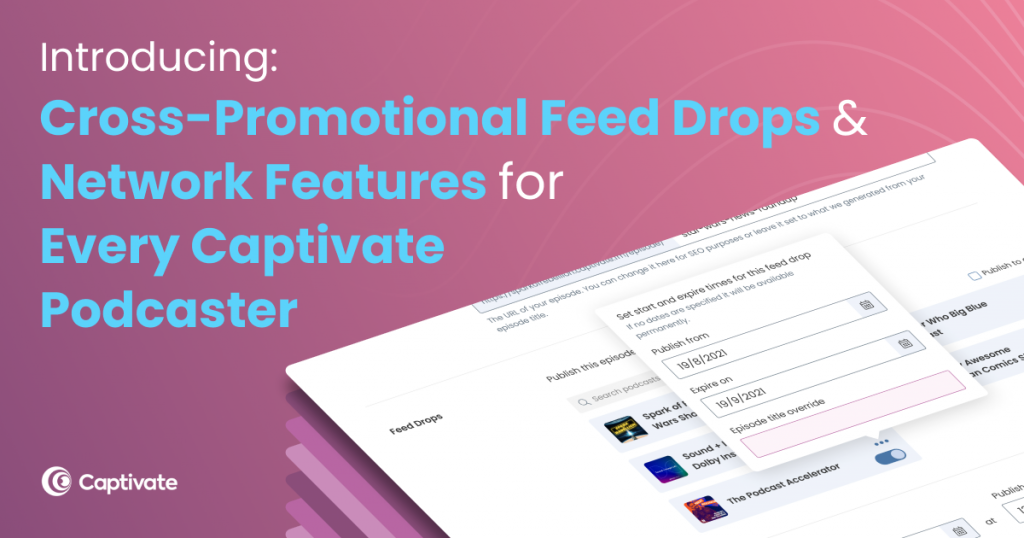
Takeaway
Joining a podcast network has many advantages such as access to additional resources and support, wider audience reach, advertising opportunities etc. Yes, there are some awesome advantages, but podcasters also need to consider the disadvantages e.g. potential loss of control, exclusivity agreements, sharing of revenue and profits etc.
Always weigh up the pros and cons of joining a network, and make sure that your values and goals align. Make sure you’re joining a network for the right reasons. Do your research. Know what you’re getting yourself into.
Alternatively, starting a podcast network may be a better option. Can you offer the industry and other podcasters something that isn’t currently available? Is there a community that you can build that is mutually beneficial? Just make sure you are prepared for setting up and running a network, and focus on building an awesome team to ensure success.
Good luck with whatever you decide to do, you’ll smash it!

